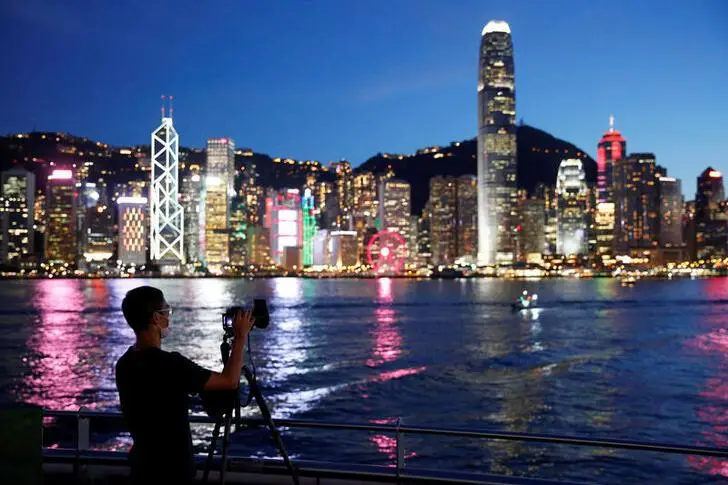PHOTO
(The author is a Reuters Breakingviews columnist. The opinions expressed are his own.)
HONG KONG - China’s President Xi Jinping is attacking China’s wide wealth gap, but Hong Kong remains the playpen of tycoons. Property developers are having a golden year as home prices approach record highs. Retail and utility cartels remain untouched.
Panicked by falling birth rates, the central government has embarked on a risky campaign to deflate the mainland property bubble and reduce wide income gaps. Wealthy capitalists are under fire. But Xi’s “common prosperity” push has not crossed the border yet.
Overheated house prices aggravate economic disparities, and Hong Kong is the world’s worst violator. On Wednesday Chief Executive Carrie Lam gave the final policy address of her term, in which she repeated commitments to relieving the housing supply bottleneck. Her latest idea is a new “Northern Metropolis” to ultimately house 2.5 million people, supplementing the man-made islands she is spending half her fiscal reserves on.
If those projects stay on schedule, the city could be swamped in apartments in a few decades. Until then, the party continues for developers like Henderson Land Development and New World Development – some of the best performers on Hong Kong’s otherwise battered stock market this year.
Lam wants more, and better, public housing, but that’s not the same as making private real estate affordable. Indeed, at the height of the pandemic her administration moved to make it easier for homebuyers to borrow more, protecting developers’ bottom lines.
Nor is housing the only factor widening the gap between rich and poor. Ordinary residents are gouged daily by family conglomerates and industry oligopolies ranging from groceries to drug stores to electricity. These have inhibited competition and innovation, and taxed consumption. At the height of the pandemic in 2020, a government study reprimanded the city’s supermarket duopoly Wellcome and ParknShop for cranking up prices far in excess of inflation, in particular for items popular with poorer consumers like canned goods. Prices kept rising.
Pro-Beijing politicians argue the draconian national security law being used to crush democracy advocates will clear the way to address these economic imbalances. Yet Lam’s approach to addressing the wealth gap involves stingy upgrades to the safety net plus more subsidised tenements - not attacking billionaires’ monopoly rents. That’s bad capitalism and bad communism, and it’s no way to achieve common prosperity.
CONTEXT NEWS
- Hong Kong leader Carrie Lam said on in a speech on Oct. 6 that her priority is to focus on tackling a long-standing housing shortage in the city. She plans to build a new urban centre along Hong Kong’s border with the mainland's technology hub of Shenzhen. It would cover 300 square kilometers with up to 926,000 residential units for some 2.5 million people.
(The author is a Reuters Breakingviews columnist. The opinions expressed are his own.)
(Editing by Antony Currie and Katrina Hamlin) ((For previous columns by the author, Reuters customers can click on SWEENEY/ SIGN UP FOR BREAKINGVIEWS EMAIL ALERTS http://bit.ly/BVsubscribe | pete.sweeney@thomsonreuters.com; Reuters Messaging: pete.sweeney.thomsonreuters.com@reuters.net))





















